What Are The Best SUVS for Towing Horse Trailers? These Are The Top 18 options for 2024
For those hauling horse trailers, choosing the right SUV is critical. Our guide, “What Are The Best SUVs for Towing Horse Trailers?” highlights top-performing models that combine power, stability, and safety, ensuring your towing needs are seamlessly met.
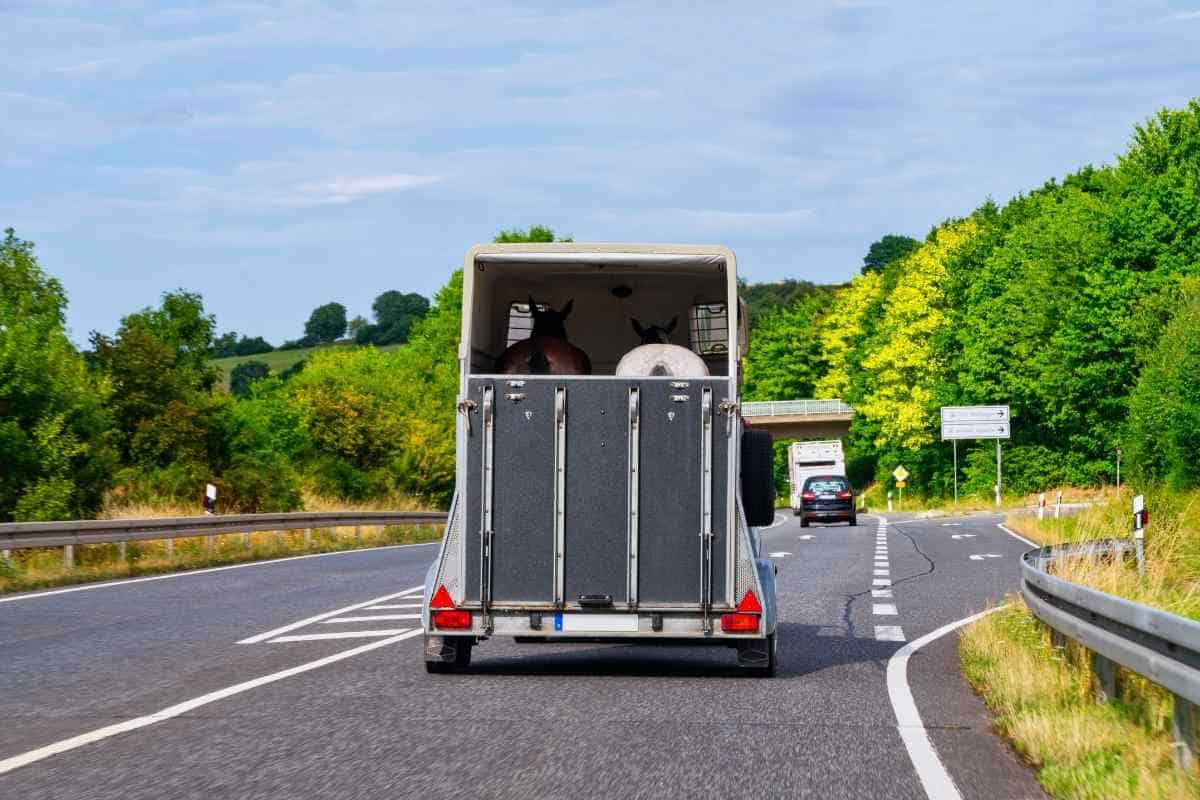
If you’re a horse owner, you know how important it is to have a reliable vehicle for towing your horse trailer. Whether you’re traveling to a competition or simply taking your horse to the vet, you need an SUV that can handle the job.
But with so many options on the market, it can be difficult to determine which SUV is the best choice for you and your horse.

“Drive Past Myths: Get the Real Deal on Car Buying!”
🚘 Uncover 13 Car Buying Misconceptions with Our FREE Newsletter!
Plus you will get our quick tips, expert advice, and myth-busting insights delivered straight to your inbox.
Subscribe now and make informed decisions without the detours.
“Experts Hate This! Learn the Car Buying Secrets They Don’t Want You to Know. Free Subscription!”
So what are the best SUVs for towing horse trailers? This list includes vehicles such as the Chevy Suburban, Ford Expedition, Land Rover Defender, GMC Yukon and others.
When it comes to selecting an SUV for towing a horse trailer, there are several factors to consider. First and foremost, you need to make sure the SUV has enough towing capacity to safely pull the weight of your trailer and horse.
Other important factors include the SUV’s stability, braking power, and overall handling. Additionally, you’ll want to consider the size and layout of the SUV’s cargo area to ensure it can accommodate all of your gear and supplies.
Let’s take a closer look at some of the best SUVs for towing horse trailers, so you can make an informed decision and keep your horse safe on the road.
Understanding Towing Capacity
When it comes to answering the question: “what are the best SUVs for towing a horse trailer?”, there’s one crucial aspect: towing capacity.
Towing capacity refers to the maximum weight that a vehicle can safely tow, including the weight of the trailer and its contents. Exceeding the towing capacity can be dangerous, causing damage to the vehicle and putting you and your horses at risk.
There are several factors to consider when determining the towing capacity of your vehicle. One of the most important is the weight of the trailer itself.
The maximum capacity of the trailer, as well as its tongue weight, should be clearly marked on the trailer.
Make sure to weigh your trailer and its contents before hitting the road to ensure that you are not exceeding the maximum weight capacity of your vehicle.
Another important factor is the tow rating of your vehicle. The manufacturer determines this rating and takes into account the vehicle’s weight, engine power, and other factors.
It is important to note that the tow rating may be different for different models of the same vehicle, so make sure to check your specific vehicle’s rating.
In addition to the tow rating, there are several other weight ratings to consider. The Gross Vehicle Weight Rating (GVWR) is the maximum weight that your vehicle can safely carry, including passengers and cargo.
The Gross Combined Weight Rating (GCWR) is the maximum weight of your vehicle and the trailer combined. The Gross Vehicle Weight (GVW) is the weight of your vehicle and its contents, while the tongue weight refers to the weight that the trailer places on the hitch.
It is important to understand these weight ratings and to make sure that you are not exceeding any of them when towing a horse trailer.
Exceeding these ratings can cause damage to your vehicle, reduce your ability to control the vehicle, and put you and your horses at risk.
Understanding your vehicle’s towing capacity is crucial when towing a horse trailer. Make sure to know the weight ratings of your vehicle and trailer, and never exceed the maximum weight capacity.
By following these guidelines, you can ensure a safe and enjoyable towing experience for you and your horses.
The Importance of Engine Power and Torque
When it comes to towing a horse trailer, the engine power and torque of your SUV are critical factors to consider. Engine power is the measure of the engine’s ability to generate energy, while torque is the measure of the engine’s ability to turn the wheels and provide pulling power.
The more powerful the engine, the more energy it can generate, and the more torque it can produce. This means that a vehicle with a powerful engine can tow heavier loads more easily than one with a weaker engine.
Most SUVs come with a V6 engine, which is powerful enough to tow a horse trailer. However, if you plan to tow frequently or over long distances, it is recommended to opt for a more powerful engine.
The powertrain is also an essential factor to consider. The powertrain is the system that transmits the engine’s power to the wheels.
It includes the transmission, driveshaft, differentials, and axles. A robust powertrain is essential for towing heavy loads, as it can handle the extra strain put on the vehicle.
In addition to engine power and torque, speed is also a crucial factor to consider when towing a horse trailer. It is recommended to keep your speed below 55 mph when towing a trailer, as high speeds can increase the risk of accidents and cause tire blowouts.
In summary, when selecting an SUV for towing a horse trailer, it is essential to consider the engine power, torque, and powertrain.
A powerful engine and robust powertrain can handle the extra strain put on the vehicle when towing heavy loads. Keep your speed below 55 mph to ensure safety and avoid accidents.
What Are The Best SUVs For Towing Horse Trailers? Here Are The Top 18 Options!
When it comes to towing a horse trailer, you want a vehicle that is not only powerful but also safe and reliable.
So, the answer to “what are the best SUVs for towing horse trailers?” includes not only torque, but many other features.
SUVs are a great choice for towing horse trailers because they offer plenty of space for both passengers and cargo, as well as the towing capacity needed to handle the weight of the trailer and horses. Here are some of the best SUVs for towing a horse trailer:
Ford Expedition
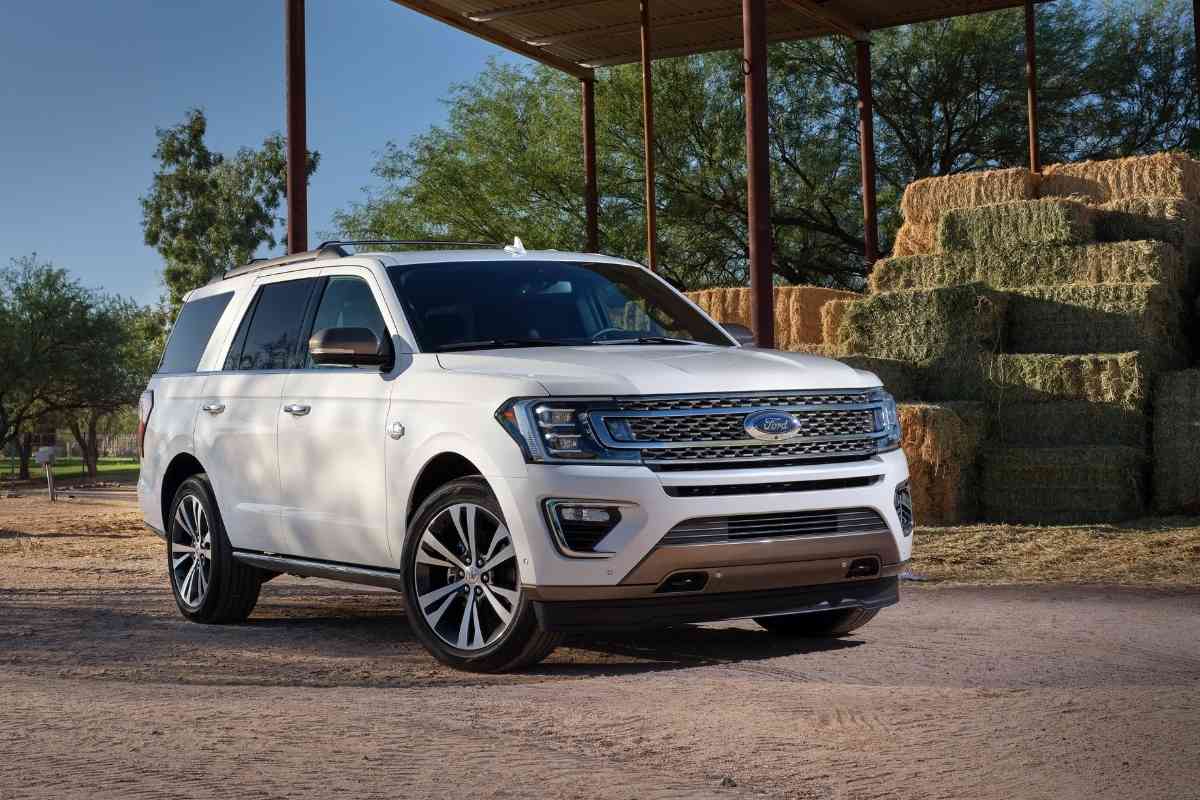
The Ford Expedition is one of the best SUVS for towing a horse trailer because of its impressive towing capacity of up to 9,300 pounds. It’s also spacious and comfortable, with plenty of room for passengers and cargo.
Chevrolet Tahoe
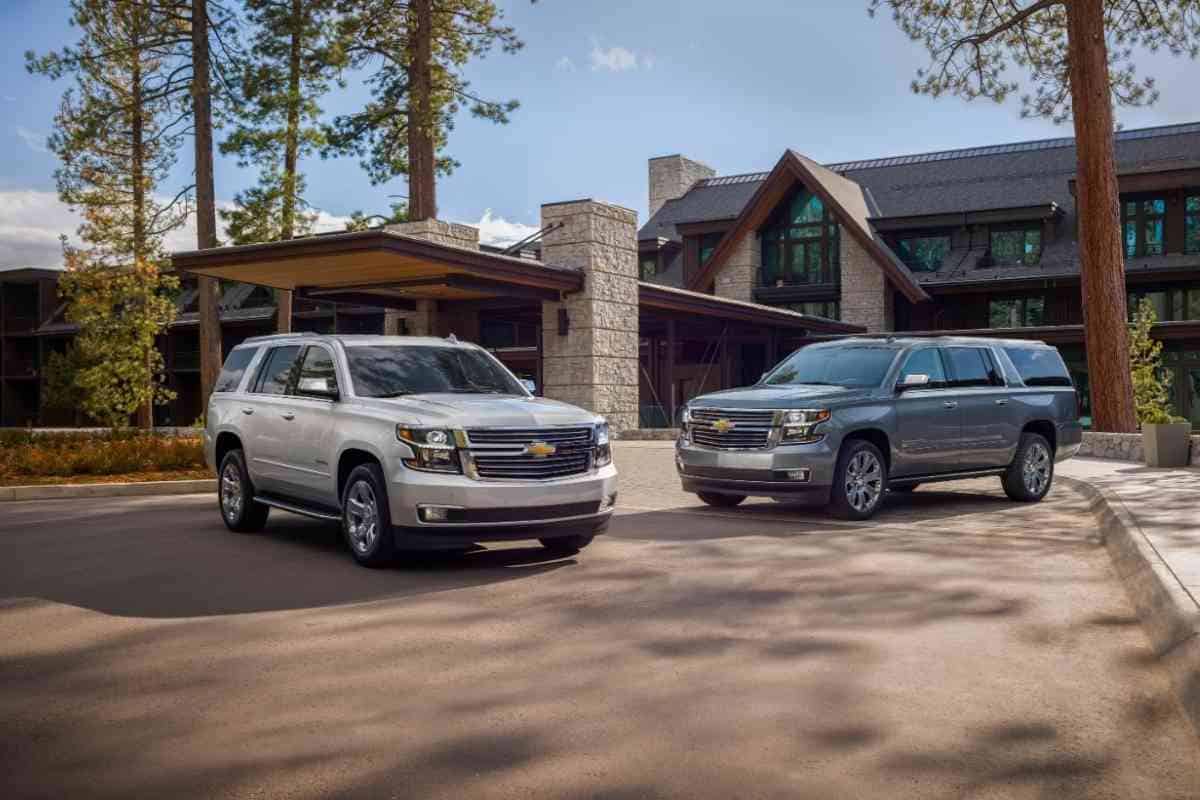
The Chevrolet Tahoe is also one of the best SUVs for towing horse trailers, with a towing capacity of up to 8,600 pounds. It’s also known for its smooth ride and comfortable interior.
Cadillac Escalade
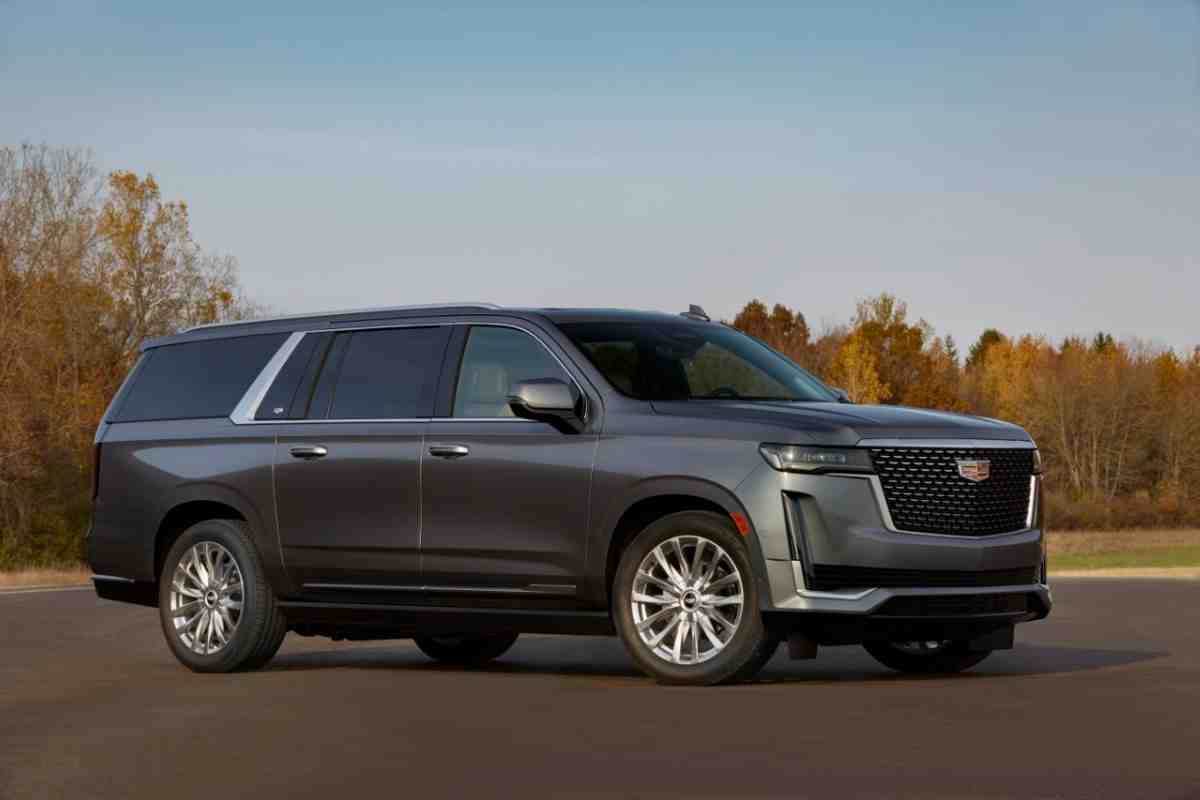
The Cadillac Escalade is a luxury SUV that is also capable of towing a horse trailer, with a towing capacity of up to 8,300 pounds. It’s spacious and comfortable, with plenty of high-end features.
GMC Yukon
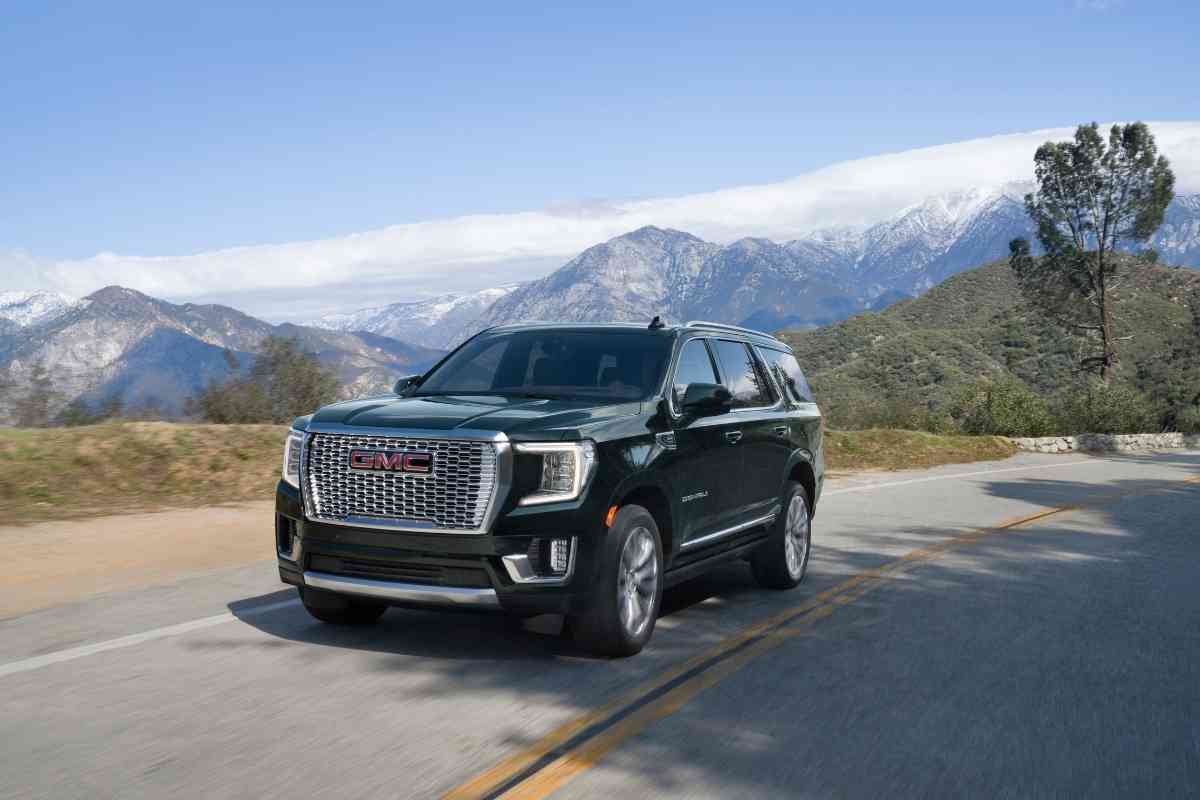
The GMC Yukon is a versatile SUV that can handle towing a horse trailer, with a towing capacity of up to 8,500 pounds. It’s also known for its comfortable ride and spacious interior.
Lincoln Navigator
The Lincoln Navigator is a luxury SUV that can handle towing a horse trailer, with a towing capacity of up to 8,700 pounds. It’s spacious and comfortable, with a high-end interior and plenty of features.
Dodge Durango
The Dodge Durango is a powerful SUV that can tow up to 8,700 pounds, making it a good choice for hauling a horse trailer. It’s also known for its sporty handling and spacious interior.
Chevrolet Suburban
The Chevrolet Suburban is a large SUV that can tow up to 8,300 pounds, making it a good choice for towing a horse trailer. It’s also known for its spacious interior and comfortable ride.
Jeep Grand Cherokee
The Jeep Grand Cherokee is a versatile SUV for towing horse trailers, with a towing capacity of up to 7,200 pounds. It’s also known for its off-road capability and comfortable interior.
Porsche Cayenne
The Porsche Cayenne is a luxury SUV that can handle towing a horse trailer, with a towing capacity of up to 7,700 pounds. It’s also known for its sporty handling and high-end features.
Audi Q7
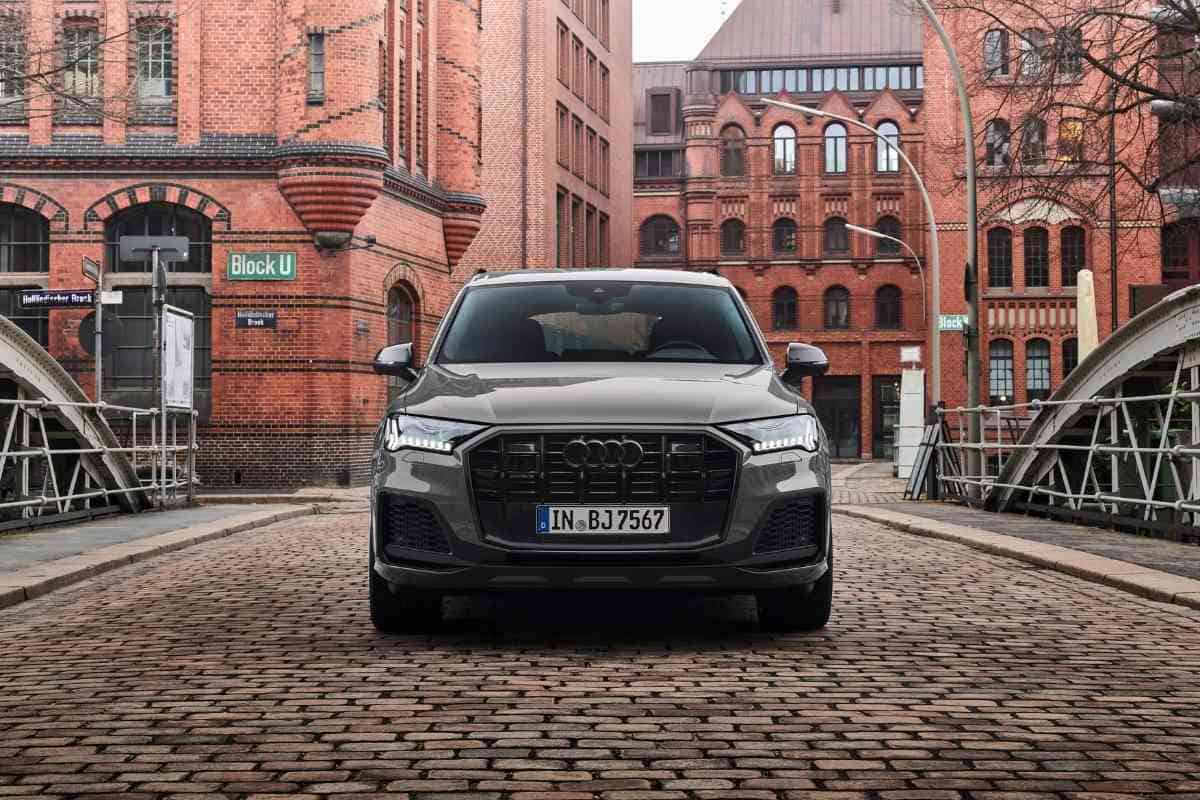
You might be surprised to see it, but the Audi Q7 is a luxury SUV that can tow up to 7,700 pounds, so it enters our list of “What are the best SUVs for towing horse trailers?” It’s also known for its comfortable ride and high-end interior.
Land Rover Defender
The Land Rover Defender is a rugged SUV that can handle towing a horse trailer, with a towing capacity of up to 8,201 pounds. It’s also known for its off-road capability and spacious interior.
Ford Explorer
The Ford Explorer is famous for its towing capacity. With 5,600 pounds, it’s an excellent SUV for towing horse trailers. It’s also known for its comfortable ride and spacious interior.
Audi Q8
The Audi Q8 is a luxury SUV that can tow up to 7,700 pounds, making it a good choice for hauling a horse trailer. It’s also known for its sporty handling and high-end features.
Land Rover Range Rover
The Land Rover Range Rover is a luxury SUV that can handle towing a horse trailer, with a towing capacity of up to 7,716 pounds. It’s also known for its off-road capability and high-end features.
BMW X7
The BMW X7 is a luxury SUV that can tow up to 7,500 pounds, making it a good choice for hauling a horse trailer. It’s also known for its sporty handling and high-end interior.
Mercedes-Benz GLE
The Mercedes-Benz GLE is a luxury SUV that can handle towing a horse trailer, with a towing capacity of up to 7,700 pounds. It’s also known for its comfortable ride and high-end features.
Toyota Sequoia
The 2023 Toyota Sequoia makes the list of “What are the best SUVs for towing horse trailers?” because of its new engine. The 3.4L V6 gives this SUV 9,520 lbs of towing capacity, making it one of the best SUVs for towing a horse trailer. Plus, it comes with the brand’s reliability and reputation.
Toyota 4Runner
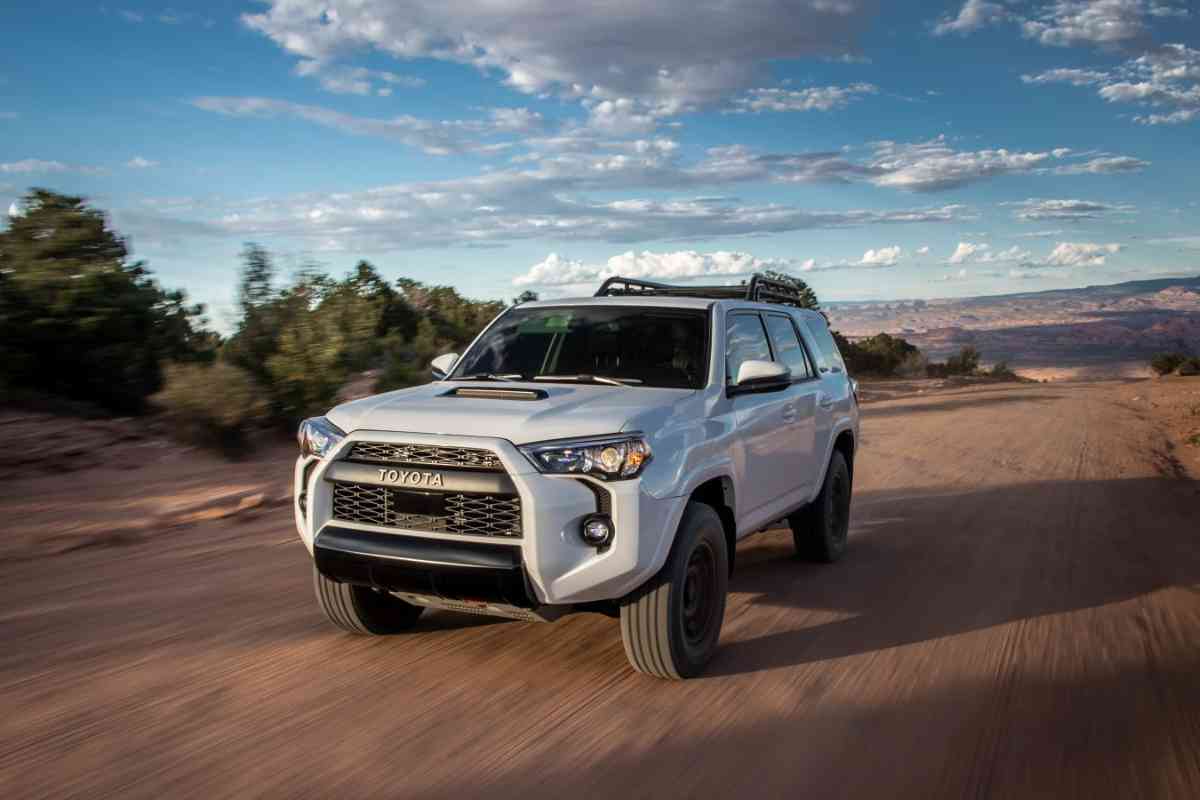
The Toyota 4Runner is one of the best SUVs for towing a horse trailer, plus it’s rugged and reliable. However, it can only tow 5,000 pounds so it’s on the lower-end of capacity.
When choosing the best SUV for towing a horse trailer, it’s important to consider factors such as towing capacity, interior space, and safety features. With so many great options available, you’re sure to find an SUV that meets your needs and budget.
SUV Comfort and Passenger Accommodation
If we’re talking about the best SUVs for towing a horse trailer, not only is the towing capacity important, but also the comfort and accommodation of your passengers.
After all, a long journey can become unbearable if the interiors of your SUV are cramped and uncomfortable.
Here are some factors to consider when looking for an SUV with comfortable interiors and spacious passenger accommodation:
Spacious Interiors
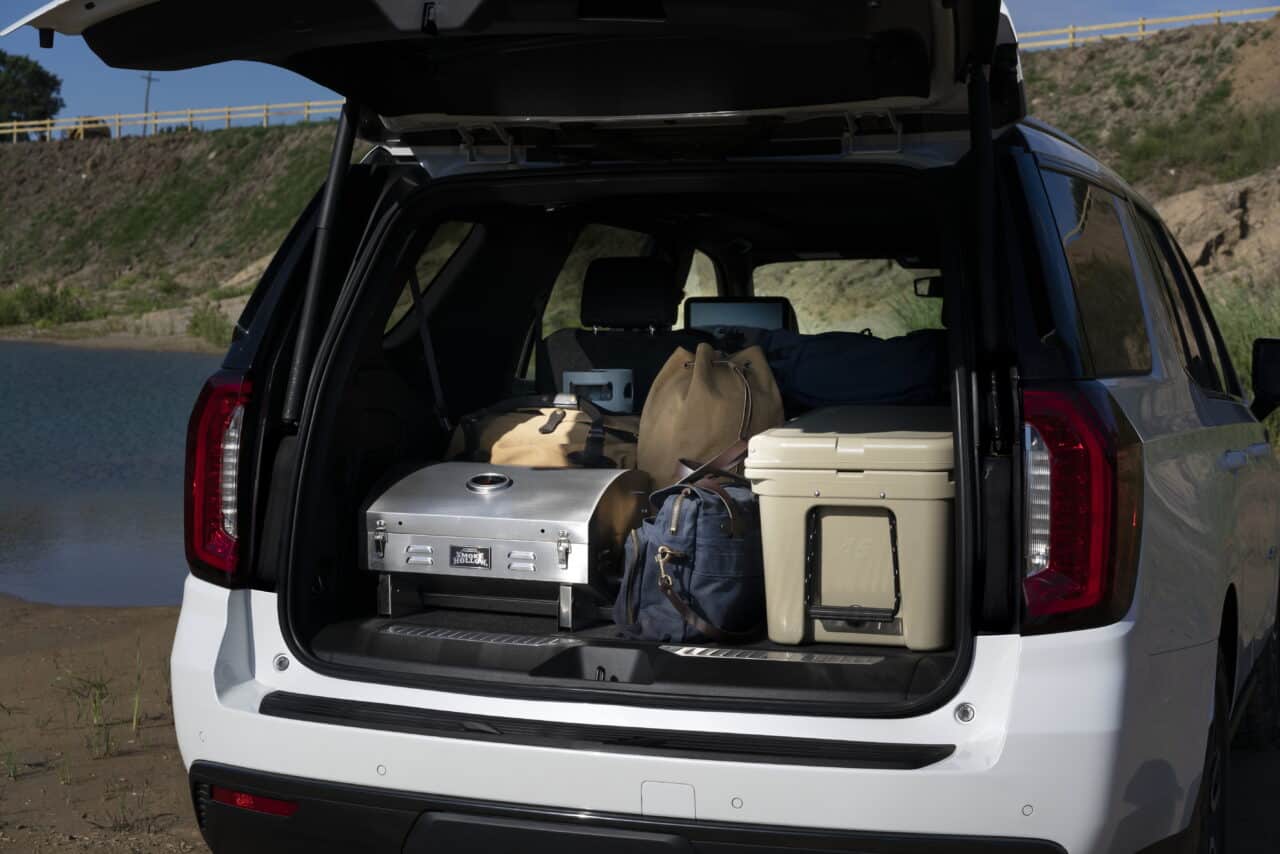
Part of why the vehicles on this list are best SUVs for towing a horse trailers is that they’re comfortable.
A spacious interior will not only make the journey more comfortable for your passengers but also provide ample space for your cargo and equipment.
Look for an SUV with a third row of seats, which will provide more space for your passengers and their luggage. Additionally, some SUVs come with foldable seats, which can be used to create more cargo space when needed.
Comfortable Seats
The seats in your SUV should be comfortable and supportive, especially if you plan to take long journeys.
Look for SUVs with seats that are adjustable and have lumbar support. Some SUVs also come with heated and ventilated seats, which can be a welcome feature during extreme weather conditions.

Passenger Accommodation
Passenger accommodation is another important factor to consider when looking for an SUV to tow your horse trailer.
Look for an SUV that can comfortably accommodate all your passengers, including those in the third row.
Additionally, some SUVs come with features like rear-seat entertainment systems, which can keep your passengers entertained during long journeys.
Interior Features
The interior features of an SUV can also make a big difference in the comfort of your passengers.
Look for SUVs with features like climate control, which can keep the interiors at a comfortable temperature.
Additionally, some SUVs come with features like panoramic sunroofs, which can make the interiors feel more spacious and airy.
In conclusion, when looking for an SUV to tow your horse trailer, it’s important to consider the comfort and accommodation of your passengers.
Look for an SUV with spacious interiors, comfortable seats, and features that can make the journey more comfortable for your passengers.
Towing Features and Technology Are Essential For The Best SUVs For Towing A Horse Trailer
When we wrote “What are the best SUVs for towing horse trailers?”, we also wanted to include how technology plays a vital role. After all, having the right features and technology can make all the difference.
Here are some key aspects to consider when looking for an SUV that can handle the job:
Hitch and Tow Package
The first thing to look for is a tow hitch receiver, which is essential for attaching your horse trailer to the SUV. Make sure that the hitch is rated for the weight of your trailer and that it is compatible with your trailer’s coupler.
Many SUVs come with a tow package, which includes features like a transmission cooler, heavy-duty radiator, and larger alternator. These components are designed to help your SUV handle the added strain of towing and can improve your vehicle’s overall performance.
Trailer Sway and Stability
Towing a horse trailer can be challenging, especially when it comes to maintaining stability on the road. Look for an SUV that comes with trailer sway control, which can help prevent your trailer from swaying back and forth while you’re driving.
Trailer stability assist is another feature to consider. This technology uses sensors to detect when your trailer is starting to sway and can apply the brakes on individual wheels to help keep everything under control.
Infotainment and Cameras
When towing a horse trailer, having a good infotainment system can make a big difference. Look for an SUV that comes with a large touchscreen display, as well as features like Apple CarPlay and Android Auto.
Cameras are also important when towing, as they can help you see what’s going on behind your vehicle. If you want one of the best SUVs for towing a horse trailer, look for one that comes with a rearview camera, as well as a 360-degree camera system that provides a bird’s-eye view of your surroundings.
Wiring and Technology
Make sure that your SUV has the right wiring to connect to your trailer’s lights and brakes. Look for an SUV that comes with a dedicated trailer wiring harness, which can make it easy to connect everything up.
Finally, consider any other technology features that might be helpful when towing a horse trailer. For example, some SUVs come with adaptive cruise control, which can help you maintain a safe distance from other vehicles on the road.
Overall, when looking for an SUV for towing horse trailers, it’s important to consider all of these factors and choose a vehicle that is well-equipped to handle the job.
SUV Safety Measures for Towing
When towing a horse trailer with an SUV, safety should be your top priority. Here are some important safety measures to keep in mind:
Brakes
Make sure your SUV’s brakes are in good condition and properly adjusted. The additional weight of the horse trailer can put a strain on your brakes, so it’s important to have them checked regularly.
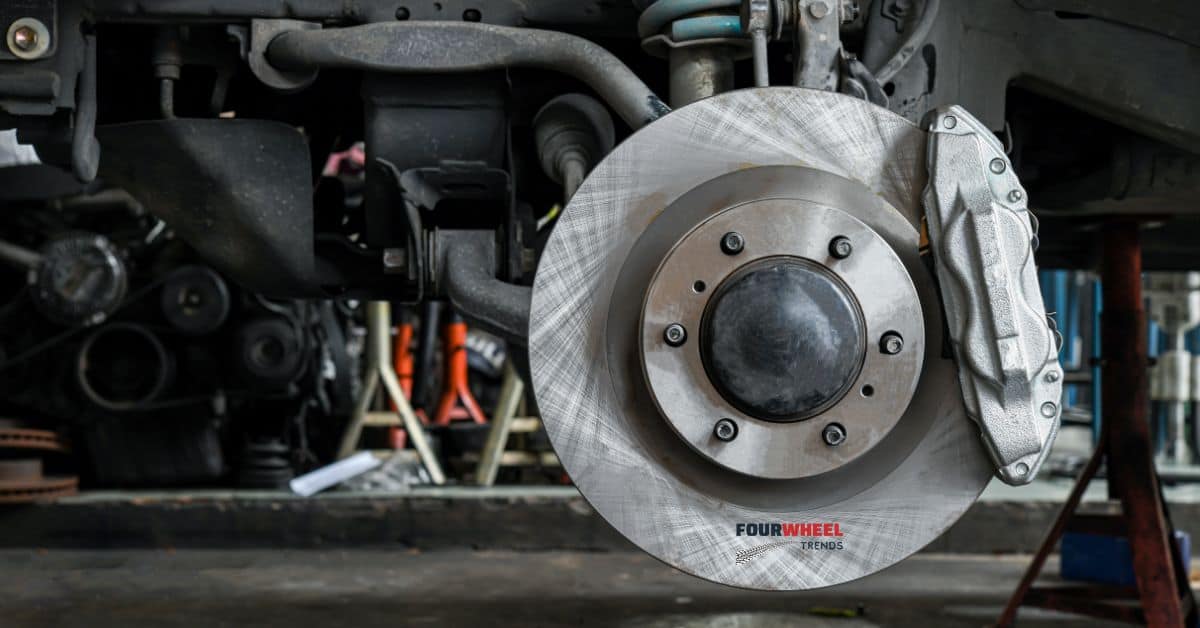
Stability
SUVs with a high center of gravity can be more prone to instability when towing a heavy load. The best SUVs for towing a horse trailer have a low center of gravity and a wide wheelbase to improve stability.
Additionally, consider using a weight distribution hitch to help distribute the weight of the trailer more evenly. Some of the options on this list are sportier SUVs, with excellent handling.
Safety Features
Look for an SUV with advanced safety features such as electronic stability control, trailer sway control, and anti-lock brakes. These features can help you maintain control of your vehicle and trailer in the event of an emergency.
Towing Capacity
Make sure your SUV is rated to tow the weight of your horse trailer. Exceeding the towing capacity of your vehicle can be dangerous and put unnecessary strain on your engine and transmission.
Proper Hitching
Make sure your horse trailer is properly hitched to your SUV. Check the hitch, coupler, safety chains, and electrical connections to ensure they are all secure and functioning properly.
By following these safety measures, you can help ensure a safe and enjoyable towing experience with your SUV and horse trailer.
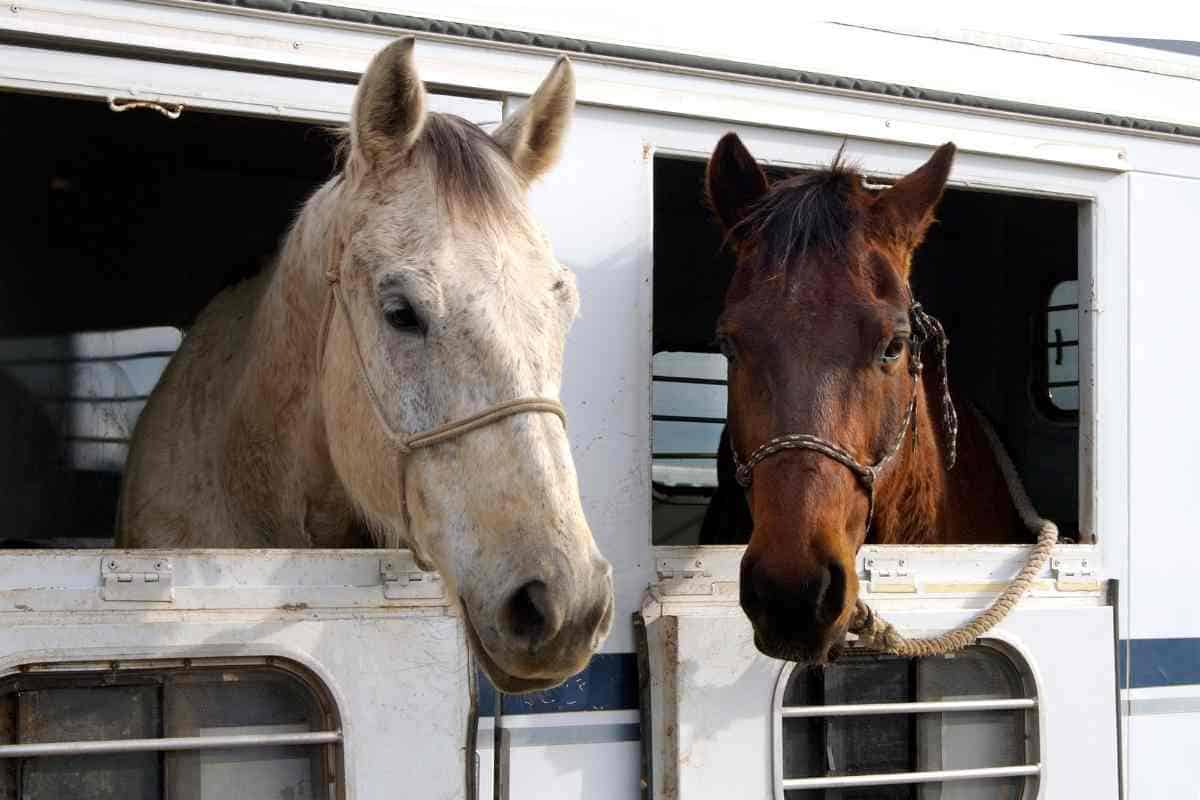
Understanding SUV Size and Weight
When it comes to towing a horse trailer, the size and weight of your SUV matter.
You want to make sure that your SUV is capable of handling the weight of the trailer and the horses, as well as providing a safe and comfortable ride for you and your passengers.
Let’s take a closer look at the different sizes of SUVs and how they relate to towing capacity.
Full-Size SUVs
Full-size SUVs are the largest and heaviest SUVs on the market. They are built on a frame and have body-on-frame construction, which makes them ideal for towing heavy loads.
Full-size SUVs typically have a Gross Vehicle Weight Rating (GVWR) of over 6,000 pounds, which means they can handle a lot of weight. The best SUVs for towing a horse trailer include the Chevrolet Tahoe, Ford Expedition, and GMC Yukon.
Midsize SUVs
Midsize SUVs are smaller and lighter than full-size SUVs, but they can still be a good option for towing a horse trailer. Midsize SUVs typically have a unibody construction, which means the body and frame are integrated into one piece.
This can make them less capable of towing heavy loads than full-size SUVs, but they are still capable of towing smaller trailers.
Some popular midsize SUVs for towing include the Jeep Grand Cherokee, Toyota 4Runner, and Honda Pilot.
Towing Capacity
When it comes to towing, the most important factor to consider is the towing capacity of your SUV. Towing capacity is the maximum weight that your SUV can safely tow.
It is important to note that the towing capacity of your SUV can vary depending on the model and configuration. Always consult your owner’s manual or contact the manufacturer to determine the towing capacity of your specific SUV.
In general, full-size SUVs have a higher towing capacity than midsize SUVs. For example, the Chevrolet Tahoe has a maximum towing capacity of 8,600 pounds, while the Jeep Grand Cherokee has a maximum towing capacity of 7,200 pounds.
However, it is important to remember that towing capacity is not the only factor to consider when towing a horse trailer.
Other factors, such as payload capacity, tongue weight, and trailer brakes, also play a role in safe and successful towing.
In conclusion, when choosing an SUV for towing a horse trailer, it is important to consider the size and weight of the SUV, as well as its towing capacity and other towing-related features.
Full-size SUVs are generally better suited for towing heavy loads, while midsize SUVs can still be a good option for smaller trailers.
Always consult your owner’s manual or contact the manufacturer to determine the towing capacity of your specific SUV, and make sure to follow all safety guidelines when towing a horse trailer.
Fuel Economy and Towing
When it comes to towing with an SUV, fuel economy is a crucial factor to consider.
Towing a horse trailer can be a demanding task, and it requires a vehicle that can handle the load while still maintaining good fuel mileage.
Here are some things to keep in mind when looking for the best SUV for towing a horse trailer:
Engine Size and Fuel Efficiency
The size of the engine is a key factor in determining fuel economy. Generally, a larger engine will consume more fuel than a smaller one.
However, when it comes to towing, a larger engine may be necessary to provide the necessary power to pull the trailer.
Many newer SUVs are equipped with engines that use advanced technologies like direct injection and variable valve timing to improve fuel efficiency.
These technologies can help to reduce fuel consumption while still providing the power needed for towing.
Transmission and Towing Capacity
The transmission is another important factor to consider when towing with an SUV.
A transmission that is designed for towing will have a lower gear ratio, which provides more torque at lower speeds. This can help to improve fuel economy while towing by reducing the strain on the engine.
It’s also important to consider the towing capacity of the SUV. The towing capacity is the maximum weight that the vehicle can safely tow.
Exceeding the towing capacity can put additional strain on the engine and transmission, which can result in decreased fuel efficiency.
Additional Tips for Improving Fuel Economy While Towing
Here are a few additional tips to help improve fuel economy while towing with an SUV:
- Keep the tires properly inflated to reduce rolling resistance
- Avoid carrying unnecessary weight in the vehicle
- Use cruise control when possible to maintain a consistent speed
- Avoid excessive idling
- Plan your route to avoid hills and other obstacles that can increase fuel consumption
Overall, finding an SUV that can tow a horse trailer while still maintaining good fuel economy requires a careful balance of power and efficiency.
By considering factors like engine size, transmission, and towing capacity, you can find an SUV that meets your needs while still being fuel-efficient.
Cargo Space and Towing Is Vital In The Best SUVs For Towing A Horse Trailer
When it comes to towing a horse trailer, cargo space is a crucial factor to consider. You need to ensure that the SUV you choose has enough space to accommodate all your gear, including saddles, bridles, grooming supplies, and other equipment.
In addition to cargo space, you also need to consider the towing capacity of the SUV. The towing capacity refers to the maximum weight that the vehicle can pull.
To find the best SUVs for towing a horse trailer, you must choose an SUV with a towing capacity that matches the weight of your horse trailer, including the weight of your horses and all your gear.
Some of the best SUVs for towing horse trailers offer ample cargo space and impressive towing capacity.
One SUV that offers impressive cargo space and towing capacity is the Chevrolet Suburban. With a maximum towing capacity of up to 8,300 pounds and a cargo space of up to 144.7 cubic feet, the Suburban is an excellent choice for horse owners who need to transport multiple horses and all their gear.
Other SUVs that offer ample cargo space and impressive towing capacity include the Ford Expedition, GMC Yukon, and Toyota Sequoia. These SUVs are designed to handle heavy loads and offer plenty of space for all your gear.
In summary, when choosing an SUV for towing a horse trailer, you need to consider both cargo space and towing capacity. Look for an SUV that offers ample space for all your gear and has a towing capacity that matches the weight of your horse trailer.
With the right SUV, you can transport your horses and all your gear safely and comfortably.
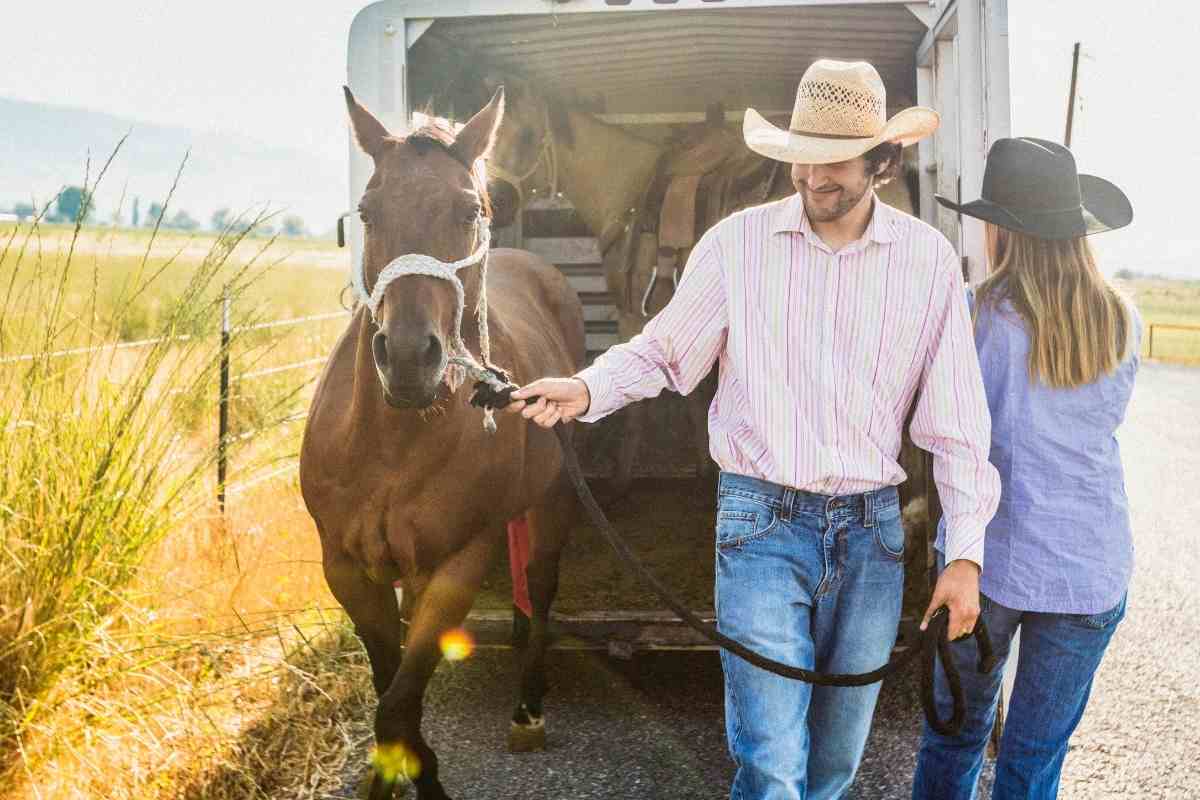
Are The Best SUVs For Towing A Horse Trailer Expensive?
When it comes to towing a horse trailer, you want an SUV that can handle the job. But you also want something that’s comfortable and stylish. That’s where value and luxury come in.
Value doesn’t mean cheap. It means getting the most for your money. You want an SUV that’s reliable, efficient, and affordable.
Some of the best values in SUVs for towing include the Toyota 4Runner, the Nissan Pathfinder, and the Ford Expedition. These SUVs have a strong reputation for reliability and come with plenty of features to make towing easier.
On the other hand, luxury SUVs offer a higher level of comfort and style. If you’re willing to spend a bit more, you can get an SUV with premium materials, advanced technology, and a smoother ride.
Luxury SUVs that are great for towing include the Cadillac Escalade, the Lincoln Navigator, and the Mercedes-Benz GLS. These SUVs offer a high level of refinement and are perfect for those who want to make a statement.
Luxury SUVs are often made by high-end manufacturers who have a reputation for quality and performance. Brands like Cadillac, Lincoln, and Mercedes-Benz are known for their luxury vehicles and have a loyal following.
These manufacturers offer SUVs that are not only luxurious but also powerful and capable of towing heavy loads.
In summary, when looking for an SUV to tow your horse trailer, consider both value and luxury. There are plenty of options available to suit your needs and budget.
Whether you want a reliable and affordable SUV or a high-end luxury model, there’s an SUV out there for you.
Frequently Asked Questions
What are the Best SUVs for towing horse trailers?
The top SUVs for towing a horse trailer are the Ford Expedition, Chevrolet Suburban, GMC Yukon XL, and Toyota Sequoia. These SUVs have a high towing capacity and are equipped with features that make towing a horse trailer easier and safer.
What is the maximum towing capacity of an SUV?
The maximum towing capacity of an SUV varies depending on the make and model. However, most mid-size and full-size SUVs have a towing capacity of at least 5,000 pounds, while some can tow up to 9,000 pounds or more.
Can a small SUV tow a horse trailer?
It is not recommended to tow a horse trailer with a small SUV. Most small SUVs have a towing capacity of less than 3,500 pounds, which is not enough to safely tow a horse trailer. It is important to use a vehicle with a high enough towing capacity to avoid putting yourself, your horses, and other drivers at risk.
What is the smallest vehicle that can tow a horse trailer?
The smallest vehicle that can safely tow a horse trailer is a mid-size SUV with a towing capacity of at least 5,000 pounds. It is important to choose a vehicle with a high enough towing capacity to ensure the safety of your horses and other drivers on the road.
What is the towing capacity of a Ford Expedition?
The towing capacity of a Ford Expedition varies depending on the year and model. However, most Ford Expeditions have a towing capacity of at least 9,000 pounds, which is more than enough to safely tow a horse trailer.
Is there an SUV that can tow 10000 lbs?
Yes, there are several SUVs that can tow 10,000 pounds or more. These include the Ford Expedition, Chevrolet Suburban, GMC Yukon XL, and Toyota Sequoia. It is important to note that towing capacity can vary depending on the specific make and model, so it is important to check the manufacturer’s specifications before towing a horse trailer.
